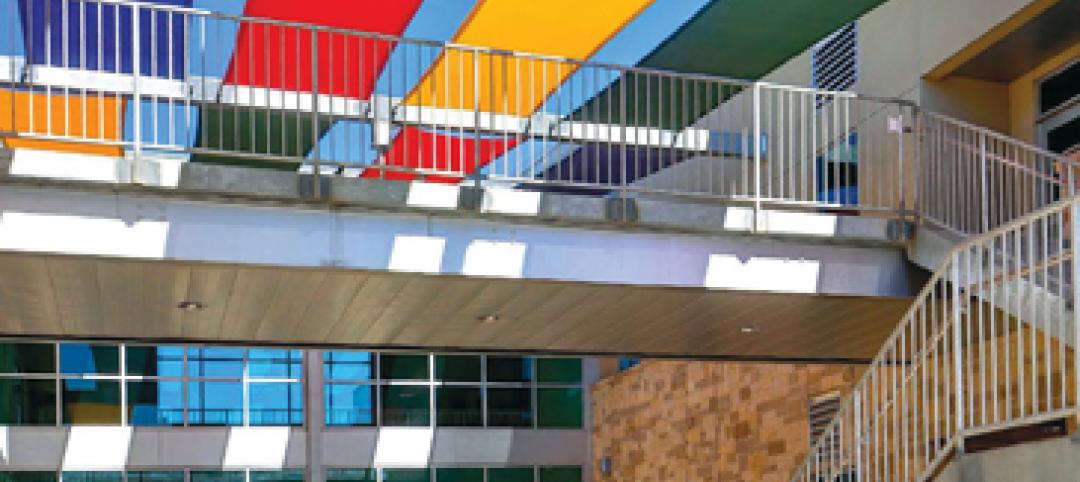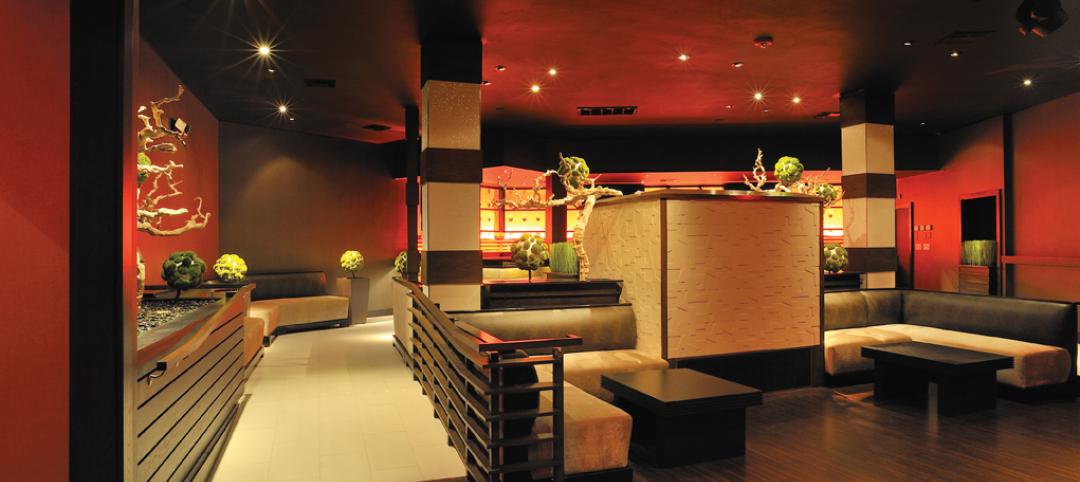The American Institute of Architects (AIA) TAP/CCA Innovation Award honors new practices and technologies that will further enable project delivery and enhance data-centric methodologies in the management of buildings for their entire lifecycle, from design, to construction and through operations. The AIA’s Technology in Architectural Practice (TAP) Knowledge Community, in collaboration with the Construction Contract Administration (CCA) Knowledge Community has selected the recipients for the 2016 TAP/CCA Innovation Awards.
Categories for the TAP/CCA Innovation Awards include: Stellar Design, Project Delivery & Construction Administration Excellence, Project Lifecycle Performance (none selected this year), Academic Program/Curriculum Development and Exemplary use in a Small Firm. The descriptions below give a brief summary of the projects being recognized. You can learn more about these projects by clicking on the name of the project/firm name.
Category A | Stellar Design
Award Citation
Astana Expo City 2017; Astana, Kazakhstan
Adrian Smith + Gordon Gill Architecture
 Image courtesy of Adrian Smith + Gordon Gill Architecture
Image courtesy of Adrian Smith + Gordon Gill Architecture
Currently under construction, Astana Expo City 2017 will embrace the exposition’s theme, “Future Energy,” with the aim of reducing the overall energy demand of the site by using both passive and active strategies. All opportunities for power generation were investigated and several were incorporated into the building-design guidelines, including high-performance glazing; energy piles that will reduce energy demand and provide temperature modulation during winter; energy storage capacity that can meet two days of emergency demand; 100% of rainfall from a 100-year storm event managed on site; and 90% of waste generated on site will be diverted from a landfill.
Honorable Mention
Epic Deep Space Auditorium; Verona, Wisconsin
Cuningham Group Architecture, Inc.
 Image courtesy of cuningham group architecture Inc.
Image courtesy of cuningham group architecture Inc.
Situated on an 811-acre site, Deep Space is Epic Systems Corporation’s largest auditorium, seating up to 11,400 guests and was completed in less than 24 months. To create the rolling roof forms and building façade, a combination of hand sculpted and laser-cut models were developed concurrently in programs suited for generation of complex shapes. The final physical model was a large scale clay model that was 3D-scanned in order to produce a digital point cloud which was integrated with BIM software and became the engine that drove the other technical delivery tools of the project. The auditoriums 8-acre green roof provides visual and physical connections to the surrounding Wisconsin landscape.
Category B | Project Delivery & Construction Administration Excellence
 Image courtesy of Steinkamp Photography
Image courtesy of Steinkamp Photography
Utilizing the latest Virtual Design and Construction (VDC) building tools and technology, the design team developed and pioneered new ways to add value and communicate with each other. By implementing a one-model approach, the team was able coordinate in advance of construction, which reduced duplication of modeling efforts, and greatly accelerated the development of fabrication models. Compared to a previous project with the same construction management/architect team, the one-model approach resulted in a 50% reduction in Request for Information (RFI) and an 18% reduction in Architect Supplemental Instruction (ASI), as well as the addition of five floors per the owner’s request with no change to the original completion date of the project.
Category D | Practice-based or Academic Research, Curriculum or Applied Technology Development
Honorable Mention
Glazing and Winter Comfort Tool; Boston
Payette
 Image courtesy of Payette
Image courtesy of Payette
The Glazing and Winter Comfort Tool is based on existing scientific research that aims to improve the design community’s understand of the triggers of thermal discomfort in the wintertime. It was developed to be simple and intuitive so that architects and engineers can design glazed facades that provide the desired levels of transparency, comfort and energy performance at an ideal cost. The development of the tool involved contributions from building scientists, designers and web developers. Previously, the only way to understand which façade properties negatively or positively impact occupant comfort involved a costly and time-intensive Computational Fluid Dynamics simulation. The Glazing and Winter Thermal Comfort Tool was conceived to facilitate this decision-making process quickly and inexpensively early in the design.
Category E | Exemplary use in a Small Firm
Award Citation
Youth & Opportunity United; Evanston, IL
Studio Talo Architecture
 Image courtesy of Studio Talo Architecture
Image courtesy of Studio Talo Architecture
Youth & Opportunity United (Y.O.U.), a 45-year-old non-profit, youth development agency requested renderings of their new headquarters for a community outreach and fund-raising campaign. The architects understood that the youth, not the building, needed to be the campaign's focus, so they created multiple 360-degree virtual reality video renderings of spaces in the building, populated with video avatars of young people served by the organization acting as tour guides, explaining how Y.O.U. and the new building would impact their lives. Through the dynamic video rendering, community members and donors experienced Y.O.U's mission, rather than just their plans.
The public can now vote on their favorite AIA TAP/CCA Innovation Award project. Voting will be open from October 17th to November 18th. Voting can be done here: bit.ly/TAPyourchoice
The jury for the AIA TAP Innovation Awards include: Ken Sanders, FAIA (Chair), Gensler; Heather Burpee, University of Washington; Ian O’Cain, AIA, Eskew+Dumez+Ripple Architects; Greg Gidez, AIA, Hensel Phelps Construction and Pierce Reynoldson, Skanska.
Related Stories
| May 18, 2011
Eco-friendly San Antonio school combines history and sustainability
The 113,000-sf Rolling Meadows Elementary School in San Antonio is the Judson Independent School District’s first sustainable facility, with green features such as vented roofs for rainwater collection and regionally sourced materials.
| May 18, 2011
New Reform Jewish Independent school opens outside Boston
The Rashi School, one of only 17 Reform Jewish independent schools in North American and Israel, opened a new $30 million facility on a 166-acre campus shared with the Hebrew SeniorLife community on the Charles River in Dedham, Mass.
| May 18, 2011
Design diversity celebrated at Orange County club
The Orange County, Calif., firm NKDDI designed the 22,000-sf Luna Lounge & Nightclub in Pomona, Calif., to be a high-end multipurpose event space that can transition from restaurant to lounge to nightclub to music venue.
| May 18, 2011
Lab personnel find comfort in former Winchester gun factory
The former Winchester Repeating Arms Factory in New Haven, Conn., is the new home of PepsiCo’s Biology Innovation Research Laboratory.
| May 18, 2011
Addition provides new school for pre-K and special-needs kids outside Chicago
Perkins+Will, Chicago, designed the Early Learning Center, a $9 million, 37,000-sf addition to Barrington Middle School in Barrington, Ill., to create an easily accessible and safe learning environment for pre-kindergarten and special-needs students.
| May 18, 2011
Raphael Viñoly’s serpentine-shaped building snakes up San Francisco hillside
The hillside location for the Ray and Dagmar Dolby Regeneration Medicine building at the University of California, San Francisco, presented a challenge to the Building Team of Raphael Viñoly, SmithGroup, DPR Construction, and Forell/Elsesser Engineers. The 660-foot-long serpentine-shaped building sits on a structural framework 40 to 70 feet off the ground to accommodate the hillside’s steep 60-degree slope.
| May 18, 2011
New center provides home to medical specialties
Construction has begun on the 150,000-sf Medical Arts Pavilion at the University Medical Center in Princeton, N.J.
| May 18, 2011
Improvements add to Detroit convention center’s appeal
Interior and exterior renovations and updates will make the Detroit Cobo Center more appealing to conventioneers. A new 40,000-sf ballroom will take advantage of the center’s riverfront location, with views of the river and downtown.
| May 18, 2011
One of Delaware’s largest high schools seeks LEED for Schools designation
The $82 million, 280,000-sf Dover (Del.) High School will have capacity for 1,800 students and feature a 900-seat theater, a 2,500-seat gymnasium, and a 5,000-seat football stadium.

















